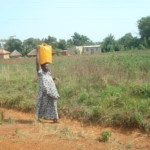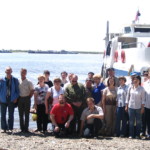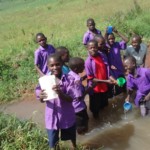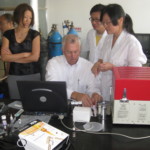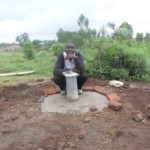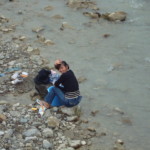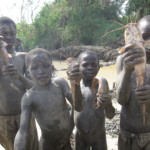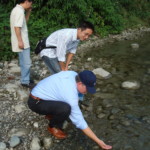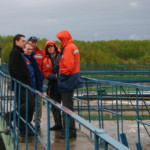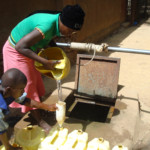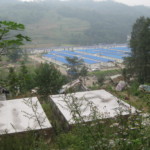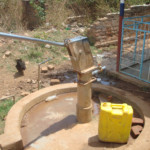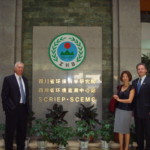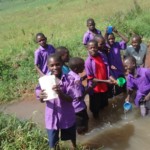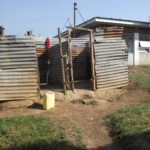

Water, Sanitation and Hygiene (WASH) projects invoke a wide array of technical and non-technical disciplines. Engineers design and build water systems. Public health professionals establish water quality standards while chemists verify that those standards are being maintained. But water infrastructure is public infrastructure, and the legal, financial and policy issues involved in public projects can be as much an impediment to WASH projects as any lack of technical know-how. ECO International builds teams of technical and non-technical professionals to help partner communities overcome all these problems, and thrive.
В проектах водоснабжения, санитарии и гигиены (WASH) задействован широкий спектр технических и нетехнических дисциплин. Инженеры проектируют и строят водные системы. Специалисты общественного здравоохранения устанавливают стандарты качества воды, а химики проверяют их соблюдение. Но водная инфраструктура – это государственная инфраструктура, и юридические, финансовые и политические вопросы, связанные с государственными проектами, могут быть таким же препятствием для проектов WASH, как и любое отсутствие технических ноу-хау. ECO International создает команды технических и нетехнических специалистов, чтобы помочь сообществам партнеров преодолеть все эти проблемы и добиться успеха.
水,卫生与卫生(WASH)项目引用了许多技术和非技术学科。 工程师设计和建造水系统。 公共卫生专业人员建立水质标准,而化学家则确认这些标准得到维持。 但是水基础设施是公共基础设施,公共项目中涉及的法律,财务和政策问题可能会像缺乏任何技术知识一样,成为WASH项目的障碍。 ECO International 建立了技术和非技术专业人员团队,以帮助合作伙伴社区克服所有这些问题并蓬勃发展。
Clean Water Initiative - Khabarovsk, Russia
 When a Chinese chemical plant exploded November 13, 2005 it sent a 90-mile plume (spot, or пятно as the Russians called it) of toxic substances downriver to the Amur River, the primary drinking water source of Khabarovsk, Russia. By December 9, 2005, Portland’s Mayor sent word to Khabarovsk’s Mayor that the City of Portland would send a team of experts headed by ECO International to help protect the citizens of Khabarovsk. The Clean Water Initiative was carried out under the auspices of the Portland Khabarovsk Sister City Association with funding from the Trust for Mutual Understanding and several other public and private donors. The City of Portland Water Bureau donated a portable Gas Chromatograph with Photo- and Flame-Ionizing Detectors. ECO International instructed Khabarovsk Vodokanal on the GC/PID+FID’s usefulness in obtaining real time (15 minutes or less) assessments of water quality throughout the city system. In the months that followed ECO International sent a team of specialists to Khabarovsk to collaborate on monitoring and assessing impacts to the Amur River as the “spot” passed Khabarovsk. Two delegations of scientists and engineers traveled to the US from Khabarovsk to consult with American specialists. Within a year, Khabarovsk started planning to install a state-of-the-art activated carbon filtration system at its drinking water plant, designed by Portland engineers utilizing US filtration technology.
When a Chinese chemical plant exploded November 13, 2005 it sent a 90-mile plume (spot, or пятно as the Russians called it) of toxic substances downriver to the Amur River, the primary drinking water source of Khabarovsk, Russia. By December 9, 2005, Portland’s Mayor sent word to Khabarovsk’s Mayor that the City of Portland would send a team of experts headed by ECO International to help protect the citizens of Khabarovsk. The Clean Water Initiative was carried out under the auspices of the Portland Khabarovsk Sister City Association with funding from the Trust for Mutual Understanding and several other public and private donors. The City of Portland Water Bureau donated a portable Gas Chromatograph with Photo- and Flame-Ionizing Detectors. ECO International instructed Khabarovsk Vodokanal on the GC/PID+FID’s usefulness in obtaining real time (15 minutes or less) assessments of water quality throughout the city system. In the months that followed ECO International sent a team of specialists to Khabarovsk to collaborate on monitoring and assessing impacts to the Amur River as the “spot” passed Khabarovsk. Two delegations of scientists and engineers traveled to the US from Khabarovsk to consult with American specialists. Within a year, Khabarovsk started planning to install a state-of-the-art activated carbon filtration system at its drinking water plant, designed by Portland engineers utilizing US filtration technology.
Earthquake Response - Chengdu, China
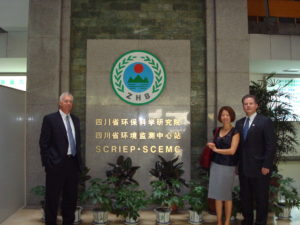 When a 7.9 magnitude earthquake struck Sichuan Province in western China, Beijing assigned to each Province in China responsibility for coordinating a response within an assigned “county” within Sichuan Province. Fujian, Oregon’s “sister” province, was assigned Wenchuan, the mountainous epicenter of the earthquake. Naturally, the Oregon Fujian Sister State Association, under the direction of the Oregon legislature, offered to assist. OFFSA in turned to ECO International to design and implement a meaningful response.
When a 7.9 magnitude earthquake struck Sichuan Province in western China, Beijing assigned to each Province in China responsibility for coordinating a response within an assigned “county” within Sichuan Province. Fujian, Oregon’s “sister” province, was assigned Wenchuan, the mountainous epicenter of the earthquake. Naturally, the Oregon Fujian Sister State Association, under the direction of the Oregon legislature, offered to assist. OFFSA in turned to ECO International to design and implement a meaningful response.
Bugiri Hospital Water System - Bugiri, Uganda
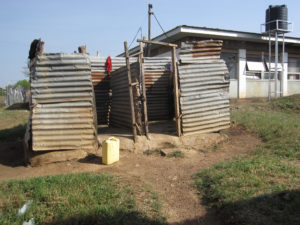 ECO International began its partnership with the community of Bugiri, Uganda at the invitation of Zubair Bakubye, who grew up in Bugiri. Bugiri District is located in SE Uganda, on the shore of Lake Victoria. Bugiri Municipality is located along an important longitudinal route across Africa (“Jinja highway”).
ECO International began its partnership with the community of Bugiri, Uganda at the invitation of Zubair Bakubye, who grew up in Bugiri. Bugiri District is located in SE Uganda, on the shore of Lake Victoria. Bugiri Municipality is located along an important longitudinal route across Africa (“Jinja highway”).
The Bugiri-Naluwere Town Council asked ECO International to assess its water system and to make recommendations for its rehabilitation. ECO International sent representatives to Bugiri in March 2012, followed up by another visit the following June.
Naturally occurring environmental burdens and the legacy of historical colonization have been debilitating. We found a community barely functioning on political patrimony and a subsistence economy. The community is socially heterogeneous, distinguished (but not yet divided) by tribe, religion, income and politics.
Improvement in Bugiri will require a combination of limited, well defined public benefit projects and broader global solutions. ECO International offers both.

